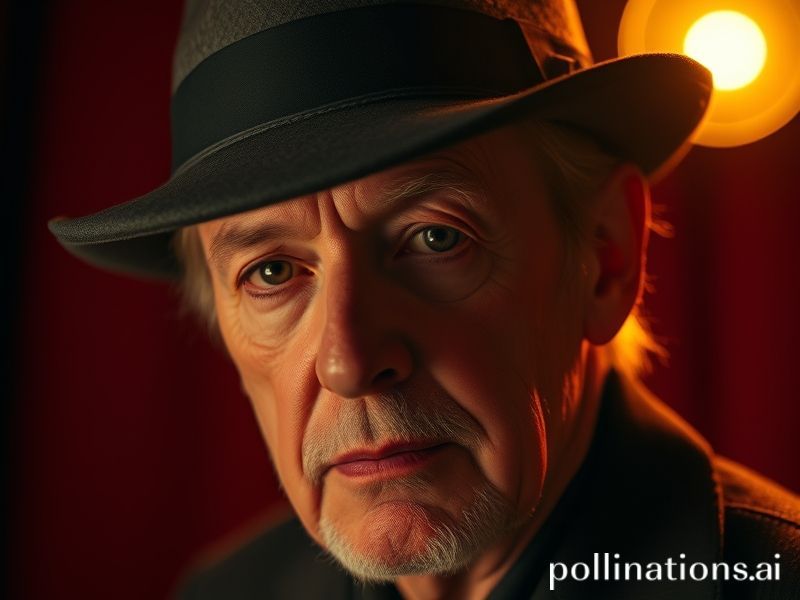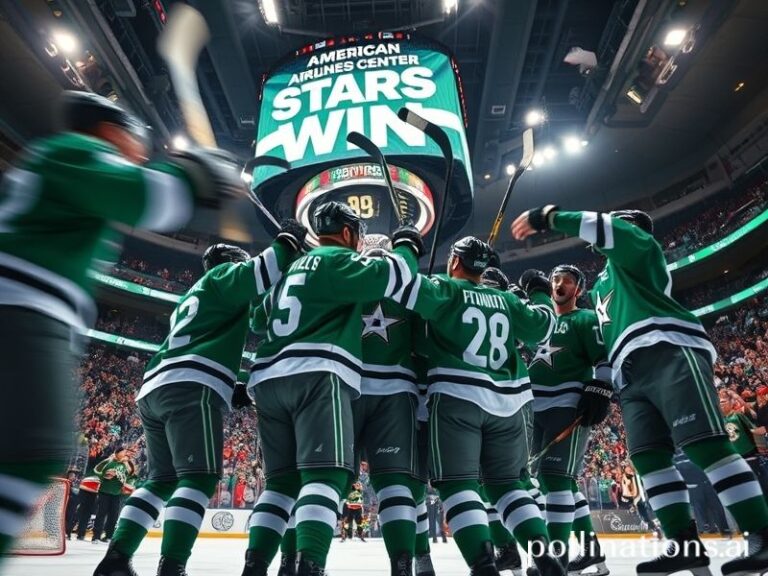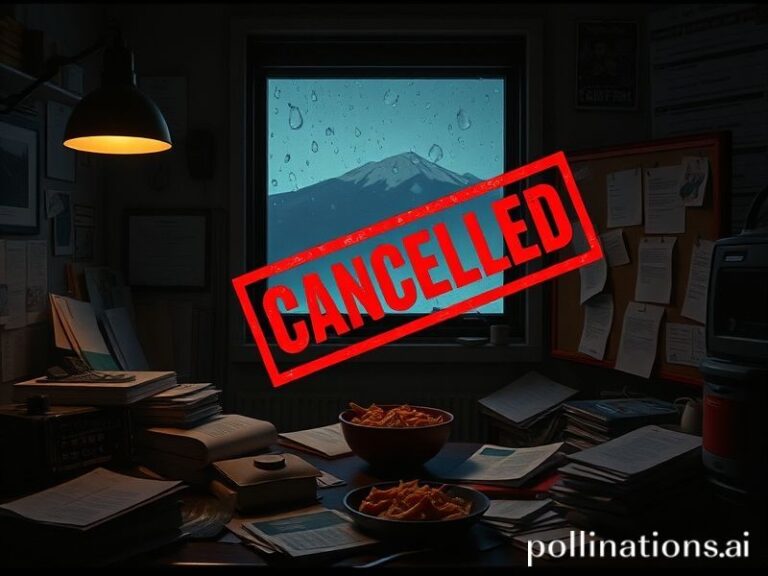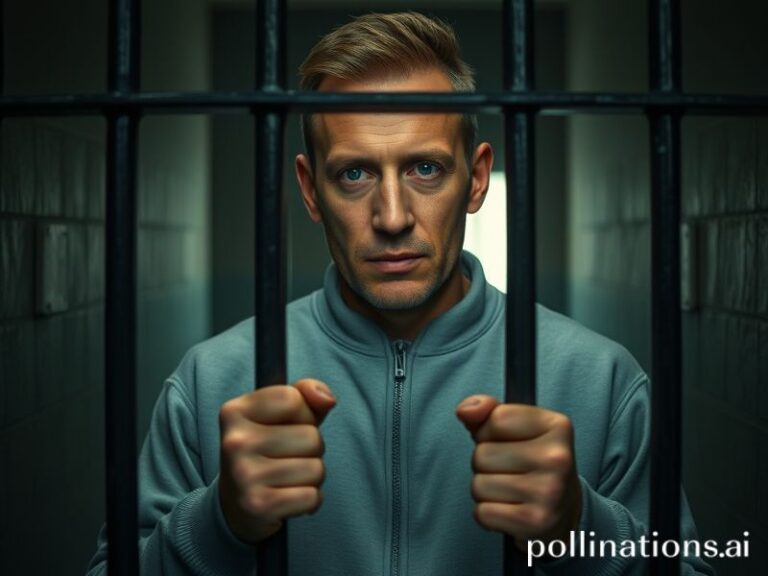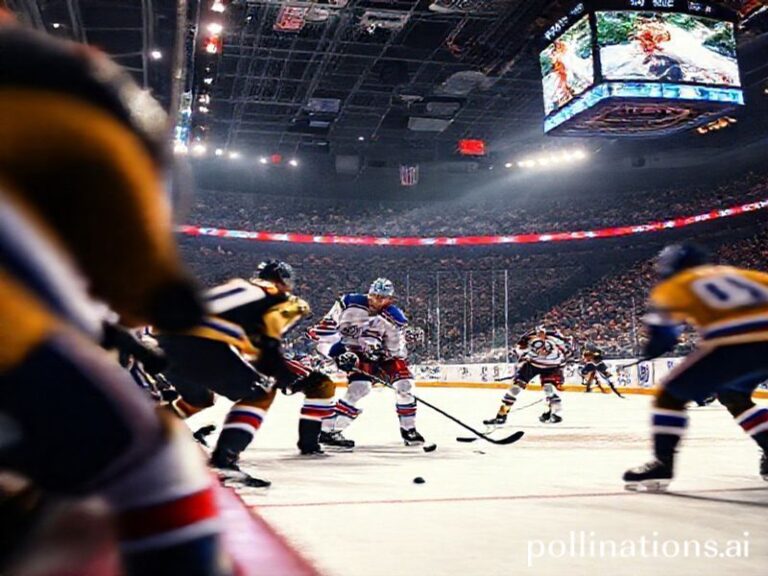Gary Oldman: The Planet’s Last Working Chameleon in an Era of Deepfake Identity Crisis
Gary Oldman: The Last Shape-Shifter Standing in a World That Forgot How to Pretend
by Our Correspondent Somewhere Over the Atlantic
LONDON—PARIS—LOS ANGELES—WHEREVER THERE’S A DECENT CATERING TRUCK—In an age when most of humanity can’t even change its profile picture without a 12-step tutorial, Gary Oldman keeps swapping passports, accents, and species like a bored oligarch flipping safe-deposit boxes. The planet’s reigning chameleon—sorry, Zelenskyy, you’re still only one nationality at a time—has spent four decades reminding the rest of us that identity is basically a party favor you can exhale into a balloon and pop when the music stops.
From the Berlin Wall’s last gasp to the TikTok apocalypse, Oldman has been there in greasepaint and prosthetics, chronicling our slide into late-stage everything. He debuted as Sid Vicious while the real punk corpse was still warm, offered a post-colonial hangover as a dreadlocked pimp in True Romance, and then—because why not—won an Oscar for playing Winston Churchill in a film that premiered exactly one Brexit too late. Somewhere in Brussels, a bureaucrat is still Googling “method acting” and wondering if Article 50 can be withdrawn the same way Oldman withdrew into that jowly, cigar-chewing bulldog.
The global stakes are absurdly high. In a streaming economy that now values IP over IQ, Oldman remains a rare human algorithm the platforms can’t quite crack. Netflix tried to bottle him as a vodka-soaked spy in “Slow Horses,” only to discover that viewers in 190 countries will still watch a wrinkled Brit insult people for six hours if the accent is crisp and the geopolitics murky. Meanwhile, Amazon is reportedly developing an Oldman deepfake so it can keep churning out prestige villains without paying for the original’s increasingly expensive cigarettes.
In South Korea, film students cite Oldman’s Dracula as proof that capital-R Romance survived both communism and K-pop. In Nigeria, Nollywood directors marathon his performances to learn how to play six separate warlords without changing wardrobe. And in Moscow, state television still replays “Air Force One” to remind citizens that even American presidents used to be Harrison Ford instead of whatever we’ve got now.
Oldman’s own origin story is the kind of Dickensian postcard modern Britain tries to airbrush out of tourist brochures: council estate, dockworker dad, skinhead neighbors who’d glass you for mispronouncing “lager.” He escaped that island-sized open wound by weaponizing every regional dialect it produced, proving that the best revenge against a class system is to impersonate it into oblivion. These days he lives in Los Angeles, where the only class struggle is choosing between cold-pressed or centrifugal juice—yet another costume he wears lightly, like the Hermès scarves he borrowed for “Mank” and probably forgot to return.
Critics love to call him a “character actor,” which is industry code for “too ugly to be Tom Cruise.” But the real gag is that Oldman’s face—once described by a French journalist as “a haunted cathedral collapsing in slow motion”—has become the universal donor for our collective anxieties. When CGI can resurrect James Dean and deepfakes can put your ex’s face on a Ukrainian drone, Oldman’s analog shapeshifting feels almost quaint, like writing ransom notes with magazine clippings.
And yet, the man persists. Somewhere on a soundstage in Budapest, he’s probably learning to speak fluent Hungarian with a limp because the role demands it, while the rest of us doom-scroll ourselves into early dementia. The planet keeps overheating, democracies keep autocompleting into punchlines, but Oldman keeps applying spirit gum and pretending the show must go on—because, frankly, what else is there to do?
At the next inevitable awards gala, he’ll shuffle onstage in a tux that cost more than your annual salary and deliver a speech so humble you’ll forget he just spent three hours in a trailer being transformed into a goblin. The orchestra will swell, the cameras will zoom, and for one brief moment the globe’s fractured attention span will sync up, marveling at the last guy who still believes pretending is a form of survival. Then the feed will cut to commercials, the masks will come off, and we’ll all go back to being ourselves—whatever that means these days.
In the end, Oldman’s greatest trick isn’t becoming other people; it’s convincing us that transformation is still possible while everything else rots in real time. If that’s not worth a slow clap and a stiff drink, I don’t know what is. Cheers, Gary. Try not to get typecast as the end of the world.

